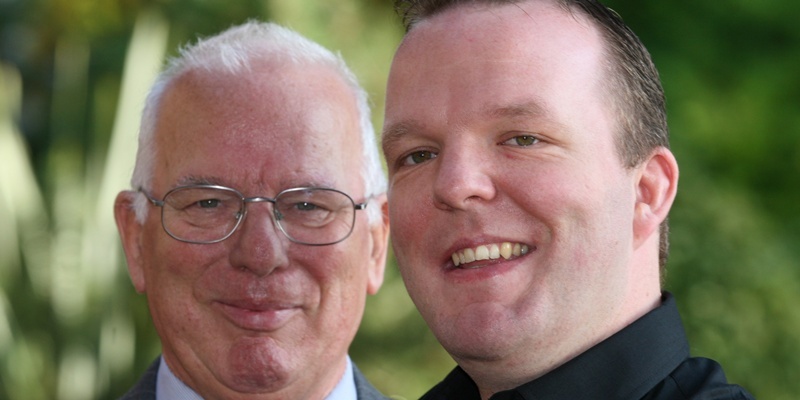A campaigning Dundee dad has said his disabled son may be forced to give up his home should wholesale changes be made to the benefits system.
Norman Gray (69) addressed members of a Scottish Government work committee on Tuesday, stating his fear that changes to the welfare system could cost people who rely on disability benefits their independence.
It comes ahead of a national change to welfare payments next spring that would see the scrapping of the current Disability Living Allowance (DLA), replaced with a payment known as the Personal Independence Payment (PIP).
Norman, whose son Andrew (33) suffers from Asperger syndrome, says reforms to the system mean people like his son could lose out on benefits, significantly impacting on his quality of life.
He planned to tell committee members that the questions used to assess candidates for PIP are too vague and may leave those who qualify for DLA out of pocket.
”When you look at the criteria, they don’t take into account all of the factors,” he said. ”Sometimes people like Andrew can be perfectly all right but at times can go into overdrive. It might ask whether a person can dress themselves but even if they can that doesn’t mean that they can dress themselves appropriately.”
Andrew, a talented swimmer who clinched gold at the 2007 Shanghai Special Olympics for the 25m butterfly, lives independently and works part-time as a waiter.
Despite his prowess in the pool, he does struggle with some basic daily tasks and his father fears the stress of a face-to-face assessment for PIP could result in Andrew not qualifying.
He receives Disability Living Allowance, funds that are crucial in allowing Andrew to live on his own and enjoy a reasonable measure of independence.
Should Andrew fail to retain his benefits, Norman, who works as an ambassador for the National Autistic Society (NAS), fears Andrew would have to seek full-time employment, a huge task for someone with his condition.
”If Andrew doesn’t get his DLA then he won’t receive his tax credits,” said Norman. ”He lives independently and one factor in getting his house was that he was receiving DLA, which meant there were finances coming in.
”He could not survive without these tax credits and would have to work more hours and he couldn’t do that.”
It is thought that as many as 34,000 people in Scotland between the ages of 16 and 64 suffer from some sort of autism.
Figures from the National Autistic Society suggest that 30% of disabled people are already living below the poverty line, with a third of adults with autism living without a job and without benefits.
Dr Robert Moffat, the national director of the National Autistic Society, said: ”When the Government brings in the new benefit, PIP, it plans to re-assess all current claimants.
”As autism is a lifelong disability and the condition will not change over time, being re-assessed regularly is a waste of resources and likely to cause considerable stress and anxiety to applicants with autism.”
